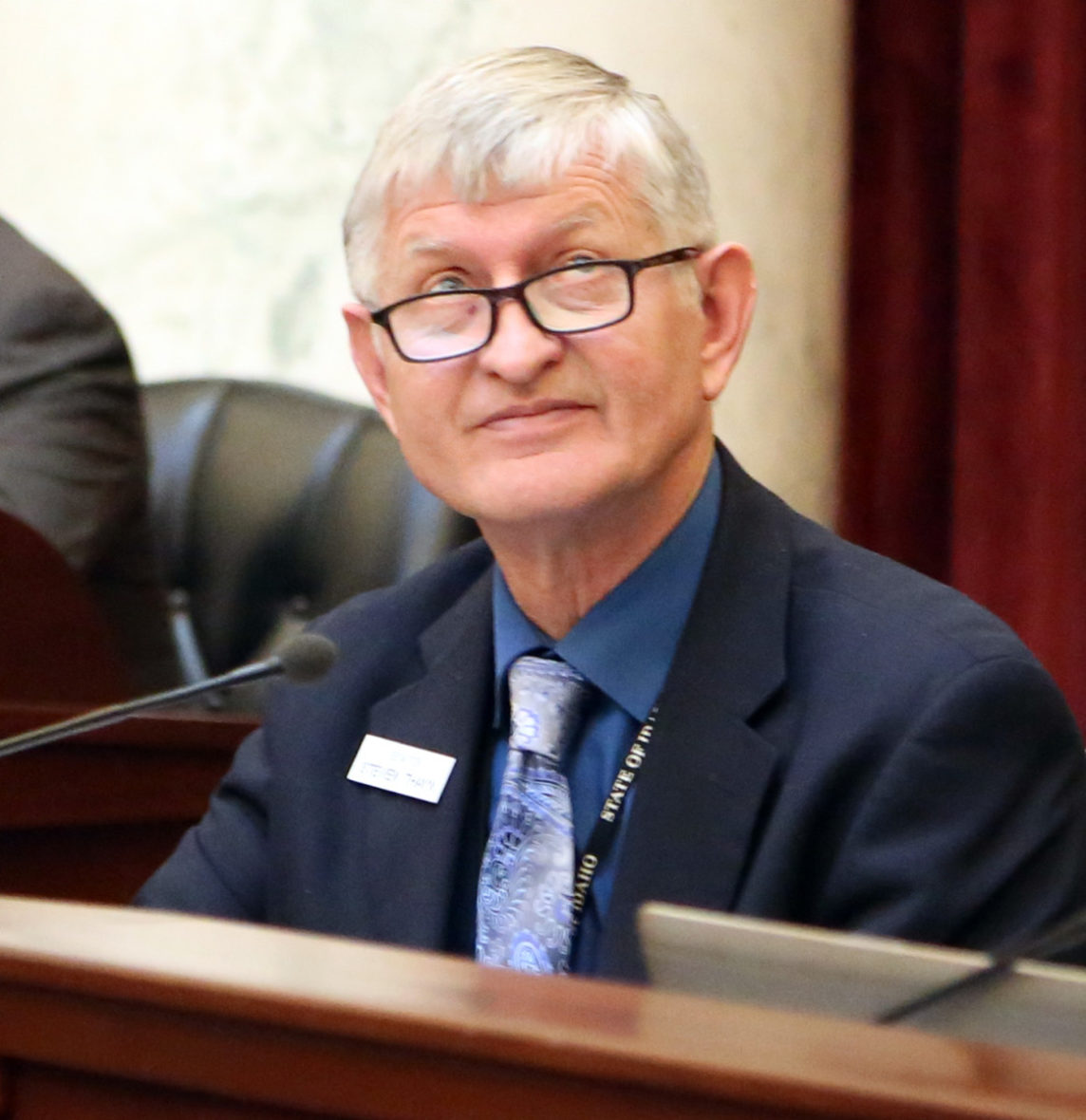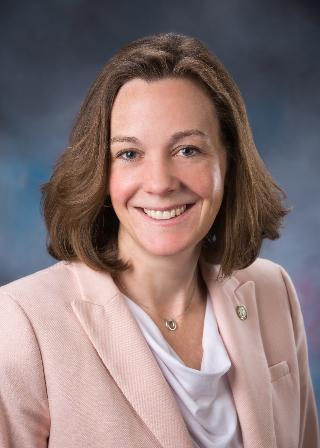Idaho’s advanced opportunities program has been growing rapidly — with more and more seventh- through 12th-grade students tapping into their share of state money.
And the program could expand this year, if some lawmakers get their way.
On Monday, a unanimous Senate voted to allow some high school students to put their taxpayer-funded $4,125 advanced opportunities allowance toward career-technical classes. It’s a bit of a departure. Currently, most students use their advanced opportunities money to earn college credits before they graduate high school. Most students enroll in dual-credit classes, college-level courses that are aligned with the state’s higher education system.

Senate Bill 1105 is designed to overcome the obstacles that prevent rural students from taking CTE courses. Students are now expected to pay for CTE classes themselves, and rural schools have to figure out how to offer costly CTE courses to a small number of students, said Sen. Steven Thayn, R-Emmett, the bill’s sponsor.
Some schools have had to find ways to work around this predicament. In Weiser — a poster child of sorts for SB 1105 — the school district has decided to absorb class fees and textbook costs, so students can pursue an appenticeship in heating, ventilation and air conditioning.
Thayn pegs the first-year costs for SB 1105 at $462,000. That estimate is based on 2017-18 enrollments; had the bill been in place in 2017-18, 480 students could have used the program to take about $154,000 in courses. But Thayn figures more students will enroll in CTE classes if they state is paying the cost.
Thayn hopes an increased advanced opportunities budget could pick up the slack. The 2019-20 public school budget includes $18 million for advanced opportunities, as requested by Gov. Brad Little and state superintendent Sherri Ybarra.
Even as currently structured, the advanced opportunities has grown beyond its budget — and in past years, lawmakers have tapped into budget reserves to cover leftover costs. Students took $16 million in advanced opportunities courses in 2017-18, up from about $13 million the preceding year.
SB 1105 now goes to the House.
Advanced opportunities and trade schools
Meanwhile, Rep. Megan Blanksma, R-Hammett, wants to allow students to tap into their advanced opportunities allowance after high school.

Her bill would allow high school graduates to use advanced opportunities money to attend a “state-designated trade school,” for up to three years after graduation.
Under the current law, students must use their advanced opportunities allowance before they graduate from high school.
It’s unclear how many students would sign up for the taxpayer-funded classes, and how much it would cost. Blanksma offered no estimates Monday, and the fiscal note attached to the bill has no price tag.
Before the House Ways and Means Committee voted unanimously to introduce the bill, Blanksma promised colleagues she would work on getting cost estimates.
Despite the cost questions, Rep. Jason Monks said he was excited about the bill, and providing another avenue for students who might not be college-bound.
We set them up a little bit for failure,” said Monks, R-Nampa.
Blanksma’s bill will likely be assigned to the House Education Committee, where it might receive a full hearing at a later date.
House passes immunization opt-out bill
A bill requiring distribution of immunization opt-out information passed the House by a wide margin.

Pushed by Rep. Priscilla Giddings, R-White Bird, House Bill 133 would require schools and childcare centers to present immunization opt-out information alongside state immunizations guidelines. Under the bill, opt-out information must be presented “any time” and “in the same manner” that information about immunization guidelines is presented.
The bill applies equally to public schools, private schools, parochial schools and childcare centers.
Giddings said the bill amounts to extra transparency for parents.
“There are a lot of frustrated parents throughout the state who feel like they are misinformed about it,” Giddings said. “We should make sure the parents have all the information when it comes to immunizing their children.”
There was very little debate over the bill. House Minority Leader Mat Erpelding, D-Boise, opposed the bill after arguing that it is problematic to force private schools to disclose such information, saying private schools should be within their rights not to accept children who are not immunized.
In the end, the bill passed 52-17. A handful of Republicans — House Health and Welfare Committee Chairman Fred Wood of Burley, House Education Committee Vice Chairman Ryan Kerby, of New Plymouth, and Reps. Britt Raybould, of Rexburg, Jarom Wagoner of Caldwell and Clark Kauffman of Filer — voted with most Democrats in opposing the bill. Reps. Chris Abernathy, D-Pocatello, and Jake Ellis, D-Boise, supported the bill’s passage.
HB 133 next heads to the Senate.
Ybarra’s office budget
The budget-setting Joint Finance-Appropriations Committee unanimously approved Ybarra’s departmental budget without any debate.
Overall, budget-writers approved $15.5 million in general fund spending for Ybarra’s office for 2019-20, representing a 3.9 percent increase. With federal funding and dedicated spending factored in, the grand total for Ybarra’s office budget comes to $40.5 million.
This office budget is separate from — and much smaller than — the K-12 public school budgets, which JFAC wrote last week.
Legislators moved three programs out of the public school budget and into Ybarra’s budget: the innovative schools program, the online class portal program and the operations costs of the Idaho Reading Indicator test. Rep. Wendy Horman, R-Idaho Falls, said JFAC moved those programs in order to clean up the public school budget in preparation to launch a rewritten public school funding formula.
“What you see is preparation for that change,” Horman said.
The debate over rewriting Idaho’s public school funding formula is one of the biggest education initiatives. However, through 50 days in session at the Statehouse, lawmakers have yet to introduce an actual bill to change the funding formula.
Ybarra’s office budget still must clear the full House and Senate.
Senate keeps senior math requirement in place
High school seniors will still have to take two semesters of math, as a byzantine House-Senate battle over graduation requirements came to a close Monday.
The Senate Education Committee upheld its earlier decision to keep the math requirements intact. This means students will still have to take six credits in math, including two credits their senior year.
The House Education Committee had voted to strip away the senior requirement — allowing students to complete their six math credits at any point in their high school careers.
The math requirements are found in administrative rule, not in state law. In order to amend a rule — in this case, to delete the senior math requirement — both houses have to agree to the change. By standing pat, Senate Education effectively overrode House Education’s action.
To further complicate the matter, lawmakers passed a bill a year ago to repeal the senior math requirement. Thayn, the author of the 2018 law, chaired Senate Education’s discussion of the senior math rule. He said his motivation was to take the graduation requirement out of state code, and spark a discussion of the senior requirements.
Idaho Education News reporter Clark Corbin contributed to this report.
